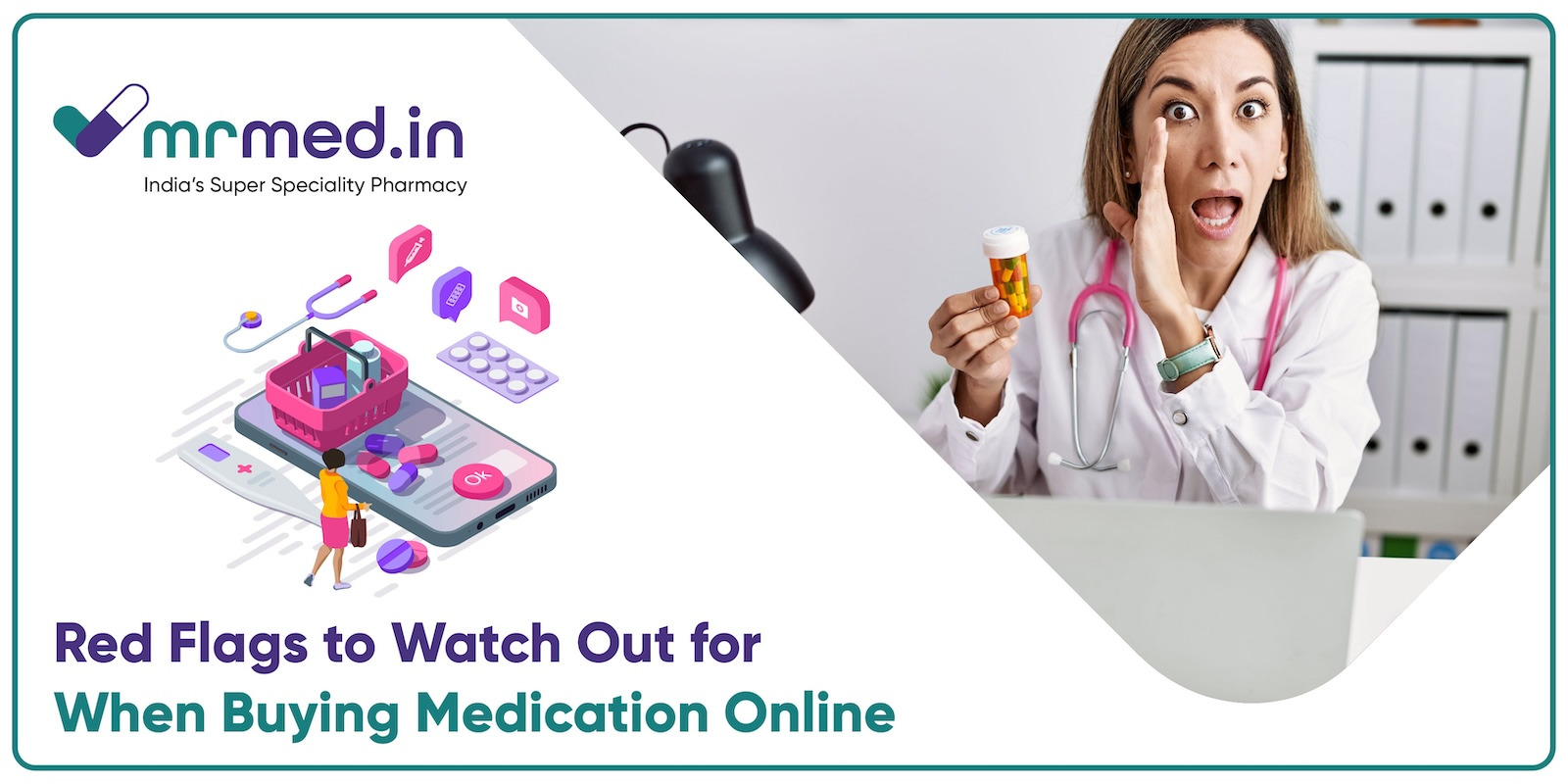As digital technology reshapes the way we shop, buying medication online has become an increasingly attractive option. In countries such as India, the rise of online pharmacy platforms has revolutionised how we access pharmaceuticals, offering unparalleled convenience.
However, this ease of access can also expose you to various risks. To ensure you’re making safe and informed choices, it’s crucial to recognise the warning signs of unreliable online pharmacies. Here’s a guide to the key red flags to watch for when purchasing medication online.
What are the 10 red flags in online pharmacies?
1. Lack of Physical Address or Contact Information
A trustworthy online pharmacy should provide a verifiable physical address and multiple contact methods, including a phone number and email. If the website lacks this information or offers only vague contact details, it might not be legitimate. Ensure you can reach out to the pharmacy for queries or issues with your order.
2. No Prescription Required
Authentic online pharmacies will always require a prescription for medications that typically need one. If an online pharmacy offers to sell prescription medications without requesting a valid prescription, it's operating illegally. This practice not only contravenes regulations but also jeopardises your health by potentially providing inappropriate or unsafe medications.
3. Unrealistically Low Prices
While everyone appreciates a good deal, prices significantly lower than the norm should be approached with caution. Extremely low prices might indicate that the medications are counterfeit, expired, or substandard. Quality medications come at a cost, and substantial deviations from standard pricing can be a red flag.
4. Unsecure Website
Protecting your personal and financial information is crucial. Ensure the website uses secure technology, such as a URL starting with "https" and showing a padlock icon in the address bar. If the website lacks these security features, it may compromise your data, making it a risky choice.
5. No Verification of License
Relevant regulatory bodies must license online pharmacies. In India, this means adhering to local regulations for operation. Verify the pharmacy's credentials through licensing numbers or certifications. If the website does not provide this information or you cannot verify their license, it's best to avoid making a purchase.
6. Over-the-Counter Availability of Controlled Substances
Medications classified as controlled substances should not be available without appropriate regulation. If an online pharmacy offers such medications without proper controls, it could be operating illegally. Controlled substances require strict oversight to prevent misuse, and any deviation from this protocol is concerning.
7. Suspicious or Generic Packaging
Legitimate medications come in professional, standard packaging with clear labels, including dosage and expiration dates. Be wary of online pharmacies that provide medications in generic or unbranded packaging, as this might suggest counterfeit products. Always examine the packaging thoroughly before using any medication.
8. Unclear Return and Refund Policies
A reputable online pharmacy in India should have a transparent and reasonable return and refund policy. If the website needs clear information on handling returns or issues with medications, it could indicate a need for more professionalism. Understanding these policies beforehand can help you avoid complications if something goes wrong with your order.
9. Excessive Advertising and Promotions
While promotions and discounts are common, excessive advertising, especially involving aggressive sales tactics or unsolicited emails, can signal a less-than-reputable operation. Legitimate online pharmacies can use low-pressure marketing techniques to attract customers.
10. No Access to Pharmacists
A reliable online pharmacy should offer access to licensed pharmacists who can provide information about medications and provide guidance. If the site does not provide this option or lacks contact information for pharmacists, it may not offer the professional support you need for safe medication use.
How do I find a safe online pharmacy?
To find the online pharmacy marketplace safely, consider the following tips:
- Check Reviews and Ratings: Look for customer reviews and ratings to gauge others' experiences. Positive feedback from satisfied customers is a good sign of a trustworthy pharmacy.
- Verify Licensing: Confirm that relevant regulatory authorities license the online pharmacy. In India, this involves ensuring compliance with local regulations.
- Use Reputable Platforms: Opt for established online pharmacies with a history of reliability. The best online pharmacy often has robust security measures and customer support.
- Consult Healthcare Professionals: If you have doubts, consult your healthcare provider before purchasing medication online. They can guide you on where to obtain your medications safely.
Wrapping up
Buying medication online offers convenience, but it also comes with risks. By being vigilant and recognising the red flags described above, you can shield yourself from fraudulent online pharmacies and ensure that your medications are safe and legitimate. In India and elsewhere, the rise of online pharmacies has made accessing healthcare products easier, but safety should always be a priority. Choose reputable sources, verify their credentials, and seek professional advice to safeguard your health and well-being.




